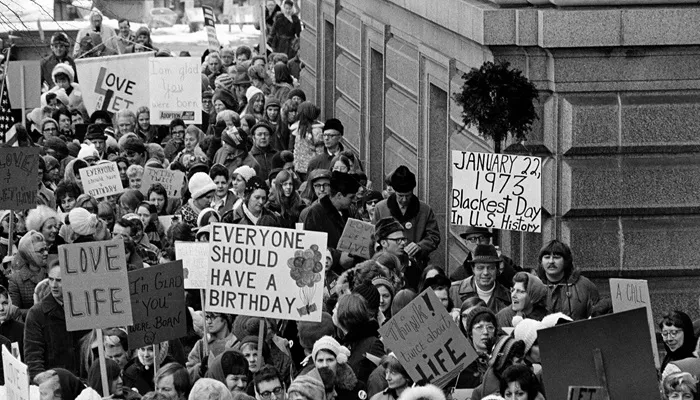January 22 has witnessed several pivotal events throughout American history, ranging from landmark legal decisions to notable births and deaths. This article will explore these events in detail, providing context and significance to each occurrence.
What Happened on January 22 in American History?
The Roe v. Wade Decision (1973)
One of the most consequential events in American legal history occurred on January 22, 1973, when the U.S. Supreme Court delivered its ruling in Roe v. Wade. This landmark decision effectively legalized abortion across the United States by declaring that a Texas statute criminalizing most abortions violated a woman’s constitutional right to privacy. The Court’s majority opinion, authored by Justice Harry Blackmun, argued that the right to privacy, while not explicitly mentioned in the Constitution, is implied by the due process clause of the Fourteenth Amendment.
The case was brought by “Jane Roe,” a pseudonym for Norma McCorvey, who challenged Texas laws prohibiting abortion except when necessary to save a woman’s life. Roe argued that these laws were unconstitutional and infringed upon her personal liberties. The case reached the Supreme Court after a series of lower court rulings.
The ruling had immediate and far-reaching implications for women’s rights and reproductive health in America. It sparked intense debate and division within society, leading to the rise of both pro-choice and pro-life movements. The decision also set a precedent for future cases related to privacy rights and women’s autonomy over their bodies.
Despite being upheld in subsequent rulings, Roe v. Wade has faced numerous challenges over the years. Various states have enacted laws aimed at restricting access to abortion, leading to ongoing legal battles that continue to this day.
The First Scheduled Flight of the Boeing 747 (1970)
On January 22, 1970, the Boeing 747, known as the world’s first “jumbo jet,” took off on its inaugural scheduled flight from New York City to London. This event marked a significant milestone in aviation history and transformed air travel for millions.
The Boeing 747 was revolutionary due to its large size and capacity, allowing airlines to transport more passengers at lower costs. It introduced features such as:
Wide-body design: This allowed for two aisles and increased seating capacity.
Advanced technology: The aircraft utilized cutting-edge engineering and design techniques.
Long-range capabilities: It enabled non-stop flights over long distances.
The introduction of the Boeing 747 made air travel more accessible and affordable for the general public. It facilitated international travel and tourism, contributing significantly to globalization.
The Élysée Treaty (1963)
Another notable event that occurred on January 22 was the signing of the Élysée Treaty in 1963 between France and West Germany. This treaty formalized cooperation between the two nations and marked a significant step toward reconciliation following centuries of conflict.
The treaty was signed by French President Charles de Gaulle and German Chancellor Konrad Adenauer against a backdrop of post-World War II recovery and European integration efforts. It aimed to strengthen ties between France and Germany, two nations that had been adversaries in multiple wars.
Regular consultations: Establishing mechanisms for regular dialogue between both governments.
Military cooperation: Promoting joint military initiatives.
Cultural exchanges: Encouraging educational and cultural exchanges between citizens.
The Élysée Treaty laid the groundwork for future European cooperation and integration, ultimately contributing to the formation of the European Union.
Conclusion
January 22 is a date rich with historical significance in American history. From landmark legal decisions like Roe v. Wade to transformative events like the first flight of the Boeing 747, this day encapsulates pivotal moments that have shaped societal norms, international relations, and cultural landscapes. As we reflect on these events, it becomes evident that each has contributed uniquely to our understanding of freedom, innovation, and human rights in America.
Related Topics:

